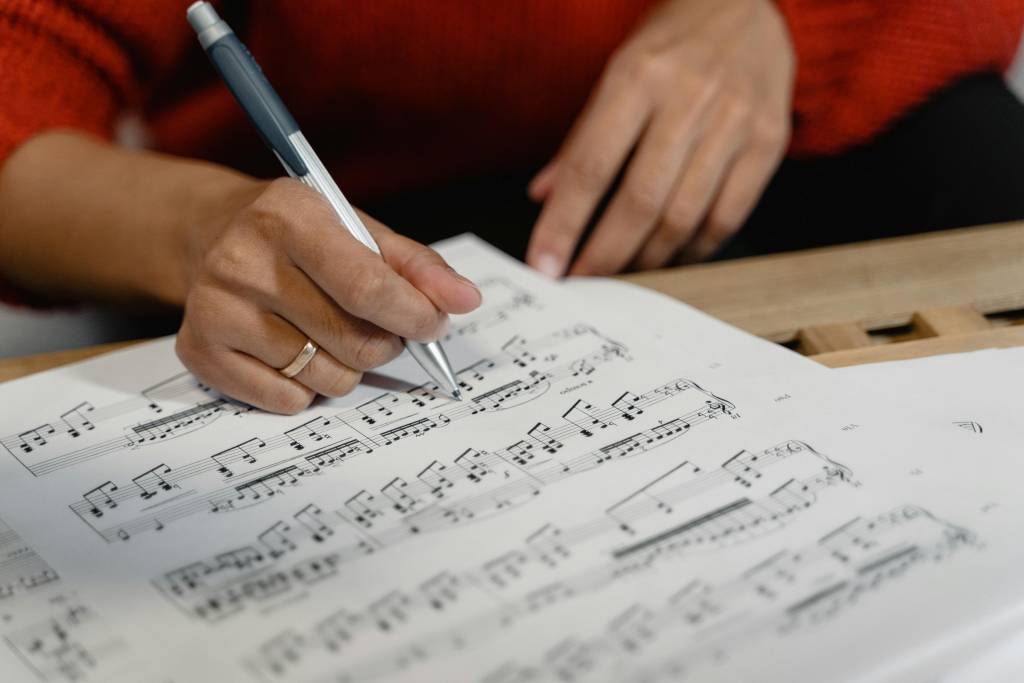What is Music Theory?
Music theory Lessons – The foundation of music. It explores how music works, delving into the structure, rules, and patterns that govern melodies, harmonies, and rhythms. From reading notes on a staff to understanding complex scales and chords, music theory unlocks the language of music, helping musicians not only play but also create and understand music at a deeper level. Whether you’re strumming an instrument, composing a piece, or simply listening to a song, a solid grasp of music theory can enhance your musical journey.
Why Music Theory Lessons Essential
Music theory is an integral part of every music lesson at Global House of Music. It goes hand-in-hand with practical learning, ensuring that students develop a well-rounded understanding of both playing their instrument and the underlying principles of the music they are making. When students understand the theory behind the music, they become better musicians, able to navigate new pieces, improvise, and communicate with other musicians more effectively.

When Should Students Start Learning Music Theory?
The best time to start learning music theory is as soon as students begin their music education. At Global House of Music, we introduce basic music theory concepts early, even for beginners, starting around age 4-6. Music theory lessons evolve with age and experience, becoming more advanced as students grow.
Understanding the basics, like the names of notes, rhythm, and dynamics, at a young age sets a strong foundation for more complex theory as students advance in their musical journey.
Music Theory: An Essential Component of Every Instrument Lesson.
No matter which instrument you play, music theory is vital to understanding how to interpret and perform music. Whether you’re learning the piano, violin, guitar, or any other instrument, music theory lessons are woven into your practice from day one. By learning to read music, understanding scales and chords, and studying rhythm and time signatures, students are empowered to perform with confidence and accuracy. Music theory helps musicians recognize patterns, anticipate musical structures, and interpret compositions in a way that goes beyond simply playing the notes.
The Different Aspects of Music Theory.
Music theory encompasses a wide range of topics, from the basics of rhythm and melody to more advanced subjects like harmony, counterpoint, and composition. These topics can be categorized into two main approaches: formal and informal theory.
- Formal Theory: This refers to the traditional, structured study of music, typically found in conservatories, academic institutions, or through formal lessons. It covers a wide array of topics such as music notation, harmony, form, counterpoint, and orchestration. Formal theory offers an in-depth and systematic understanding of how music functions at a professional level.
- Informal Theory: Informal theory, on the other hand, refers to the intuitive and practical understanding that comes from listening, playing, and experimenting with music. Many self-taught musicians may rely on informal theory, picking up concepts through trial and error or by mimicking others. While informal theory can help musicians become proficient, a deeper, more structured understanding of music theory can significantly enhance their skills and creativity.
Click Here to Learn more about the Music Examinations
Both formal and informal theory are essential to a musician’s growth, and at Global House of Music, we blend these approaches to ensure that students not only learn the technical aspects of music theory but also cultivate an intuitive feel for music.
Why Choose Global House of Music for Music Theory Lessons?
At Global House of Music, we provide comprehensive music theory lessons as part of every instrument’s curriculum. Our expert instructors ensure that students understand and apply music theory to their instruments, helping them become more versatile musicians. Whether you are a beginner or an advanced player, we offer personalized lessons that grow with you, ensuring a solid grasp of both the practical and theoretical aspects of music.
Start your music theory journey today and discover how understanding the theory of music can elevate your musical skills and appreciation. Whether you’re aiming to compose, perform, or simply understand music on a deeper level, our music theory lessons are here to guide you every step of the way.
Contact us today to schedule your music theory lessons and start mastering the theory of music!
